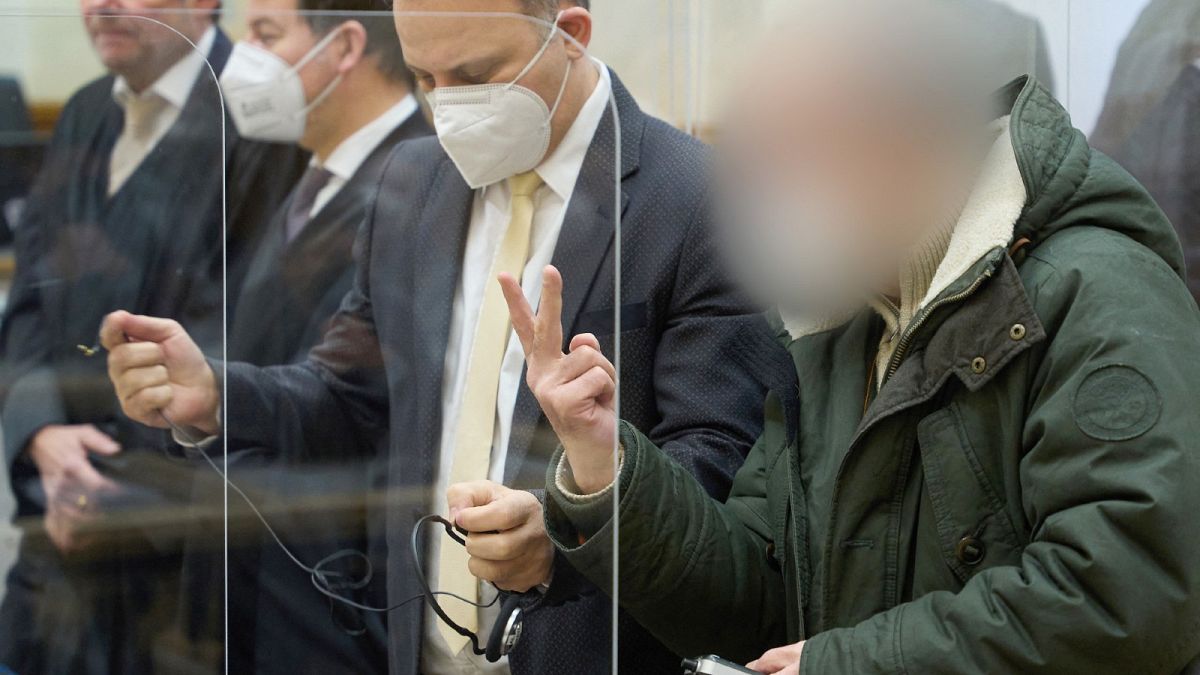Today Anwar Raslan, a colonel and torturer within Bashar al-Assad's prison system, was jailed for life in Germany for crimes against humanity. A doctor who was tortured in custody for 40 days and gave evidence in the case tells us what it means to him.
When a group of plainclothes Syrian regime security forces stormed the medical practice where I worked as a doctor outside Damascus, blindfolded me, and took me to a regime detention facility in September 2011, I was plunged into a world of suffering.
At the government-run Al-Khatib detention centre in Damascus — one of the most notoriously brutal jails in the country - a high-ranking officer in Syria's General Intelligence Directorate, Anwar Raslan, led the section responsible for interrogation.
The interrogators accused me of supporting the popular uprising against the government of Bashar Al-Assad and used different physical and psychological methods to torture me.
This went on for 40 days. While I was at Al-Khatib, for a total of 70 days, and listening to the constant cries of fellow detainees being tortured, my distraught family and friends didn’t have any indication of my whereabouts.
I was targeted because I had participated in peaceful demonstrations and worked in "field hospitals" where pro-revolution doctors treated injured protestors who feared arrest if they attended government or private hospitals.
Punishing perpetrators can serve as a warning to would-be war criminals. In 2020, Anwar Raslan was charged with crimes against humanity in a German Higher Regional Court.
German prosecutors gave Raslan’s victims a rare chance to obtain a measure of justice by employing the legal principle of “universal jurisdiction”, which allows such crimes to be prosecuted in domestic courts.
He was accused of 4,000 counts of torture, 58 counts of murder, as well as rape and sexual coercion. This is the first time a court has heard and issued findings on the crimes against humanity used by the Assad regime to suppress the peaceful demonstrations that occurred in 2011.
[Editor's note: On Thursday, Raslan was found guilty of crimes against humanity and given a life prison term]
Syrians took to the streets that March to demand a peaceful transition to democracy: But the Assad regime used every imaginable form of brutality to cling to power, bombing schools, hospitals, shelters and displacement camps, and using chemical weapons. Assad also established a sprawling system of detention centres for systematic torture.
I was eventually released to face trial but managed to escape from Syria. The atrocities continue today: more than 130,000 Syrians are believed to have been detained and forcibly disappeared since 2011.
For those who do survive Assad’s torture centres, including me, the psychological wounds are usually deeper than the physical.
Having provided mental health services to women who experienced sexual violence in detention centres I saw first-hand the reality of rape in detention. The trauma of the attack was made worse by the social stigma attached to sexual violence. Women survivors typically suffer deeper consequences than men.
Some women survivors have been rejected by their own families. One I met was so traumatised that she thought of committing suicide and killing her children, after being for just two hours, during which she was assaulted. The brutality unleashed in Assad’s Syria has brought on trauma affecting our entire society. The pain will reverberate for generations to come.
But at the same time, while I was held in detention, I never suspected that justice for the crimes committed against me and my fellow prisoners would come to offer meaning for me - and a source of hope for Syria’s future.
Viktor Frankl, an Austrian psychiatrist who survived torture during the Holocaust, wrote of finding existential meaning through his imprisonment and suffering.
In a similar way, the trial of Anwar Raslan gave me a chance to share my experience with the court in order to build evidence against him and expose the crimes of the Syrian regime. This has helped me to find meaning in my own suffering.
My testimony and that of other Syrian survivors also serves to remind the world of the nature of the Syrian regime and its ongoing crimes. The very forum for the trial — an independent court with robust defence for the accused — stands in sharp contrast to the Syrian regime’s corrupt institutions.
The day of my arrest in 2011 was Eid al-Adha, the most important holy day in Islam. Standing in pain with fellow doctors at the detention centre, I could hear the celebrations and prayers outside. I prayed to Allah for the ability to forgive.
I believe Allah has granted me this. If the crimes against humanity being carried out by the Syrian government stop, Syrians can come together to reckon with the pain they have caused. We can build a new state on a foundation of justice, accountability, and humanity. The trial of a single perpetrator in Germany is insufficient, but it is a start that helps to show us the way.
The writer is a Syrian doctor who served as a witness in the trial of Anwar Raslan, a former Syrian official who led interrogation at one of Bashar al-Assad’s most notorious detention centres. The Higher Regional Court in Koblenz, Germany, handed down a decision on the case on January 13.
